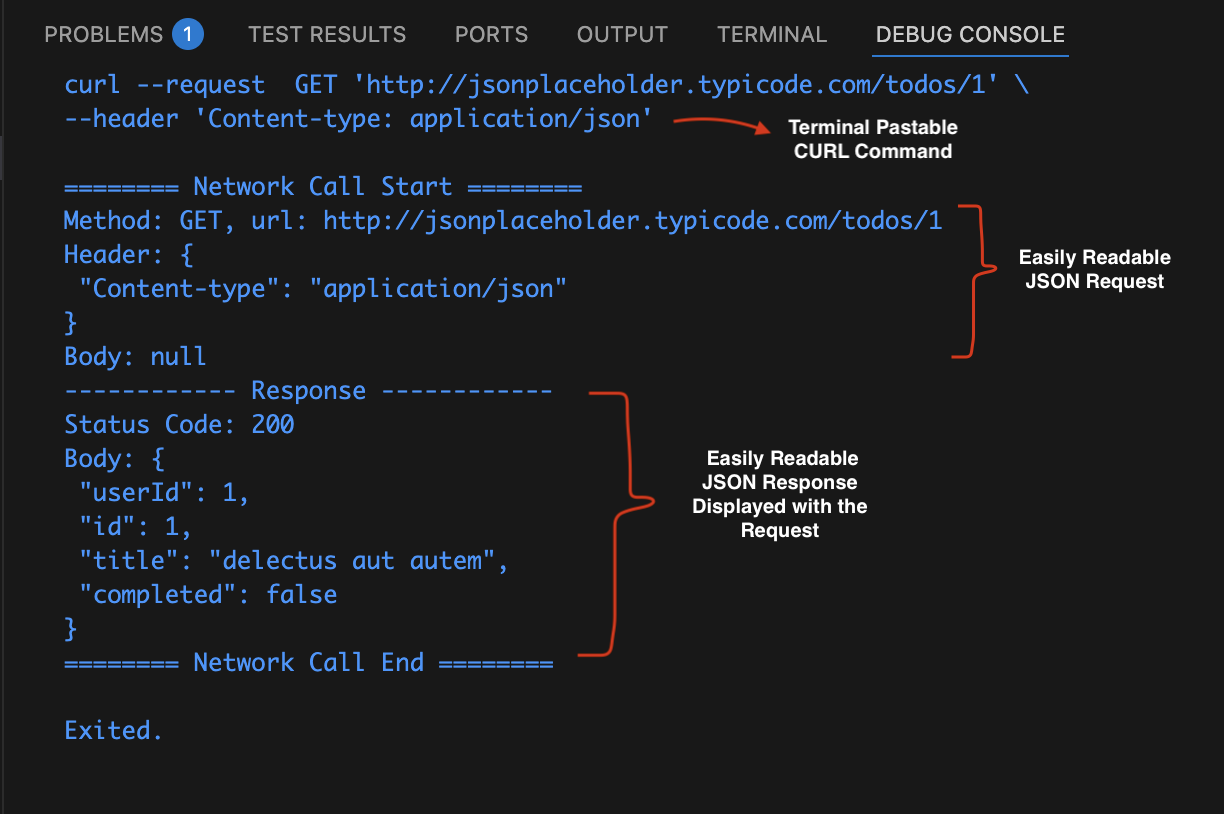network_request 0.0.3+2  network_request: ^0.0.3+2 copied to clipboard
network_request: ^0.0.3+2 copied to clipboard
A powerful and comprehensive Dart package for simplifying HTTP requests and interacting with RESTful APIs
A powerful and comprehensive Dart package for simplifying HTTP requests and interacting with RESTful APIs in Flutter and Dart applications. This package provides an organized and efficient way to handle all your networking needs, leveraging the robust http package for actual network calls. Experience streamlined API integration, enhanced debugging capabilities, and a developer-friendly approach to data fetching.
✨ Features #
- Robust Network Service Creation: Easily set up and manage your
API servicesandnetwork layers. 🚀 - Enhanced Logging for Debugging: Get detailed logs for both
API requestsandAPI responses. Essential for quick bug fixing andtroubleshooting. 🐞 - cURL Command Generation: Get
cURL commandsfor every network request for easy debugging and reproduction outside your application. 🐚 - Versatile Content Type Handling: Out-of-the-box support for common HTTP content types like
application/json,text/plain,x-www-form-urlencoded, andmultipart/form-data. 📦
📝 Logging Feature #
Best suited for JSON APIs. Get detailed logs for both requests and responses with a terminal-pastable cURL command for every request, enabling quick reproduction and testing outside your application. This feature significantly speeds up debugging and facilitates clear communication with your backend team.

🚀 Getting started #
In your Dart/Flutter project add the following line to pubspec.yaml file
network_request:
git: https://github.com/ZakaTiwana/network_request.git
Or from pub.dev use
network_request: 0.0.3+1
💡 Usage #
The network_request package simplifies the process of making HTTP requests. Extend the NetworkRequest class and implement the required overrides to define your API manager.
1. Extending NetworkRequest #
First, create a class that extends NetworkRequest. This class will serve as your API manager, where you configure base URLs, default headers, error decoders, and logging.
import 'package:network_request/network_request.dart';
void main() {
var network = MockAPIManger();
network.fetchUser(1);
}
class MockAPIManger extends NetworkRequest {
@override
String get baseUrl => 'https://jsonplaceholder.typicode.com'; // Example base URL
@override
Future<Map<String, String>> get defaultHeader async => {
HttpHeaders.contentTypeHeader: 'application/json',
};
// Optional: Add authorization headers if needed
@override
Future<Map<String, String>> get authorizationHeader async => {};
// Optional: Implement custom error decoding
@override
Exception? errorDecoder(dynamic data) {
try {
return MockAPIError.fromJson(jsonDecode(data));
} catch (_) {
return null;
}
}
// Essential: Integrate the logging feature
// This method provides detailed logs, including cURL commands
@override
void log(String logString) {
print(logString);
}
// Optional: Implement refresh token logic
@override
Future<bool> tryToReauthenticate() async {
return false;
}
}
2. Defining API Endpoints #
After setting up your NetworkRequest extension, you can define specific API endpoints using an extension (or any other perfered way such as passing this MockAPIManger object to your service class) on your manager class.
extension on MockAPIManger {
Future<MockAPIUser> fetchUser(int id) {
return call(
Request(
method: Method.GET,
path: '/todos/$id', // Example path
decode: (json) => MockAPIUser.fromJson(json),
),
);
}
}
3. Example Models for Decoding #
To decode your API responses, you'll typically define data models.
class MockAPIError implements Exception {
final int statusCode;
final String message;
const MockAPIError(this.message, this.statusCode);
@override
String toString() {
return 'Status Code: $statusCode, message: $message ';
}
factory MockAPIError.fromJson(Map<String, dynamic> json) {
return MockAPIError(json['message'], json['statusCode']);
}
}
class MockAPIUser {
const MockAPIUser({
required this.id,
required this.name,
required this.profilePic,
});
final int id;
final String name;
final String? profilePic;
factory MockAPIUser.fromJson(Map<String, dynamic> json) {
return MockAPIUser(
id: json['id'],
name: json['name'],
profilePic: json['profilePic'],
);
}
}
Find more detailed examples in the example folder.
Note: A mock server API with Dart was also created to test network_request functionality. You can find its source code here
📚 Additional Information #
Feel free to leave any suggestions :)